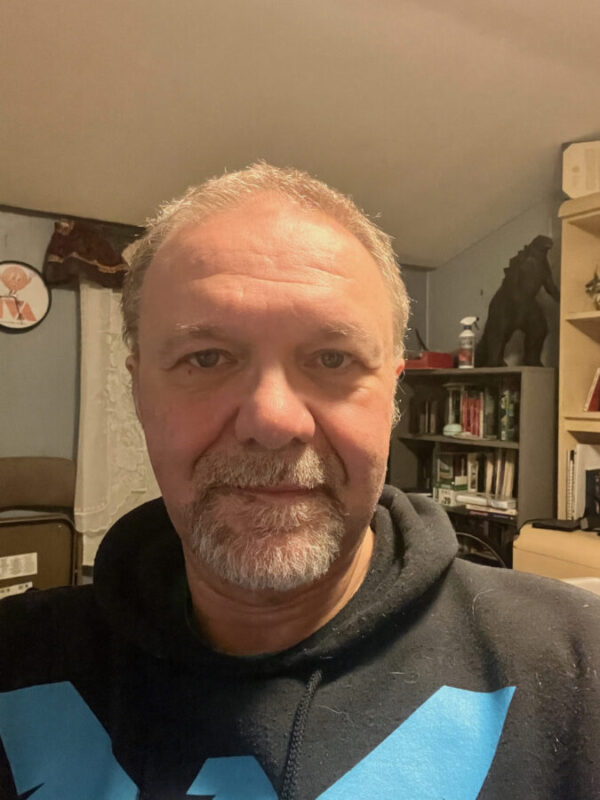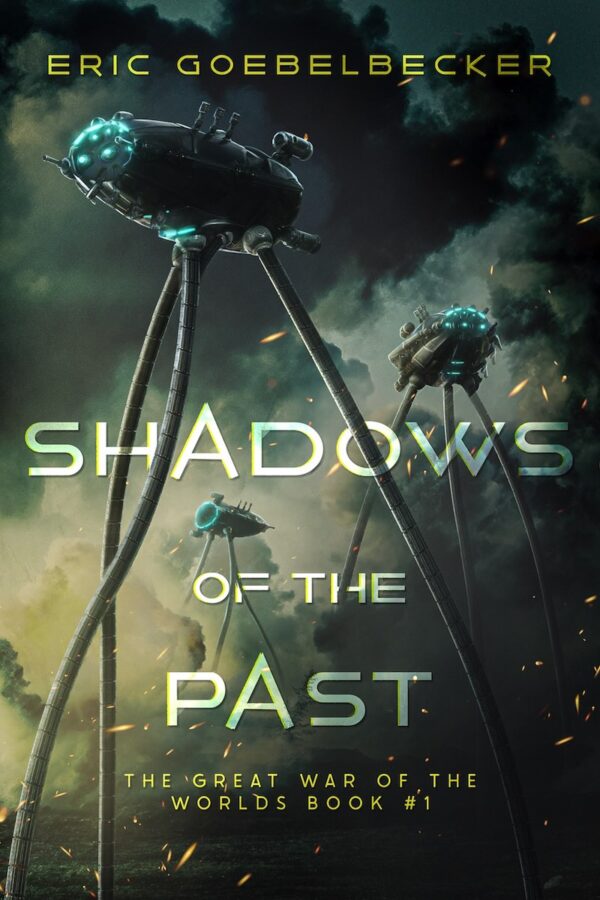
Welcome to my weekly Author Spotlight. I’ve asked a bunch of my author friends to answer a set of interview questions, and to share their latest work.
Today: I was lucky enough to inherit an incurable curiosity about technology and a tremendous love of science fiction from my father. Both led to a career repairing radars in the U.S. Army, followed by another as a programmer on Wall Street. Now, he writes about technology during the day, while writing scifi part time.
Thanks so much, Eric, for joining me!
J. Scott Coatsworth: When did you know you wanted to write, and when did you discover that you were good at it?
Eric Goebelbecker: I knew I wanted to write back when I was in High School. It just took me many decades to finally do it.
I was always told that I was good at writing and pretty much believed it. Even though I didn’t start writing fiction in earnest until a few years ago, I’ve always been writing. I’ve written for technical magazines, books and blogs. Even when I was in the Army, I wrote and submitted new test procedures for the gear I worked on.
JSC: If you could sit down with one other writer, living or dead, who would you choose, and what would you ask them?
EG: I’d love to have a cup of coffee with Kurt Vonnegut. On one level, I’d like to hear what he thinks of how far things have regressed since he passed away and bounce around some ideas about my vision of the U.S. ruled by an empty-headed populist in the 1910s. (Not that it could ever really happen.)
On another level, I’d like to simply hear what he has to say.
JSC: What do you do when you get writer’s block?
EG: I’m not sure I really believe in writer’s block, at least not the writer’s block that’s a specific affliction that stops people from writing for days or weeks at a time. I think we get stuck because of fear, self-criticism, fatigue, depression, etc.
So, when I find myself unable or unwilling to get to work, I take a step back and ask myself why. Do I need a break? Should I get on the bicycle and take a ride or head to the dojo and hit the mat a few times? Do I need to read one of my favorite authors to get some motivation and words into my head? Or is it time to push myself a bit.
JSC: If you could tell your younger writing self anything, what would it be?
EG: Start writing. Now.
JSC: Do you ever base your characters on real people? If so, what are the pitfalls you’ve run into doing so?
EG: I don’t think it’s possible not to include real people in your characters, at least not if you’re creating realistically portrayed characters. I guess the real question is whether you’re doing it deliberately.
My answer to that would he “Hell, yeah.” If the characters has a name, I had someone at least superficially in mind when I created them.
One of the POV characters in Shadows of the Past is based on my grandfather, while the other has some elements of me and a few other people I know mixed in.
JSC: How did you choose the topic for Shadows of the Past?
My grandfather was the target of political violence in Germany, so he fled to the U.S. in 1929. It’s a long story that starts with him being drafted to fight in WWI, becoming an accidental war hero, resisting right wingers that ended up being bigwigs in the Nazi party in the 1930s, and surviving an assassination attempt before his father finally convinced him to flee here. My grandmother and infant father came here nearly a year later.
I was researching this story when I realized it couldn’t be the first book I wrote. I need some practice and seasoning before tackling such an important story. So, I took some of the bits that happen on the front and morphed it into a War of the Worlds sequel.
Because I’m weird.
JSC: Why did you choose to write in your particular field or genre? If you write more than one, how do you balance them?
EG: I write science fiction and fantasy because they’re powerful lenses for examining the real world.
JSC: What tools do you feel are must-haves for writers?
EG: The tools that you will use. If you’re thinking about your tools, you’re not writing.
JSC: What secondary character would you like to explore more? Tell me about them.
EG: One of the supporting characters in Shadows of the Past ended up the POV character ion the sequel Clouds in the Future, which is coming out on December 16th. He played a small but key role in Shadows that was driven by his backstory. That little bit of backstory led me to wanting to let him drive the next book.
JSC: Who has been your favorite character to write and why?
EG: Another background character in Shadows of the Past ended up getting a lot of “screen time” in Clouds in the Future. I’m still deciding whether or not he’s an antihero or just a jerk. Depending on the answer, he may end up having a book.
And now for Eric’s new book: Shadows of the Past:
It’s 1915, twenty years after the Martian invasion chronicled in the War of the Worlds failed. The aliens left behind advanced technology and weapons, and now humanity is on the brink of a catastrophic war. Caught in the middle of the chaos are two unlikely heroes: Emil Zimmerman, a young German soldier, and James Brogan, an introverted radio engineer.
Emil dreamed of escaping his small village and making his way to the big city, but finds himself in the trenches fighting for an army that indiscriminately wields deadly Martian weapons. Meanwhile, James just wants to be left alone, but is pulled into a web of conspiracy when he’s called upon to repair crucial radios on Long Island.
As the world hurtles towards the brink of destruction, Emil and James find themselves on a collision course with fate, each struggling to survive and make sense of a new reality.
Shadows of the Past is a science fiction, alternate history, survival adventure. Do you love War of the Worlds by H.G. Wells? Then the thrilling journey of The Great War of the Worlds, where humanity grapples with the legacy of Martian technology is the ride you’re looking for.

